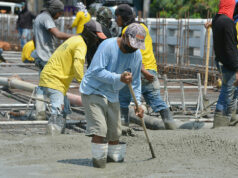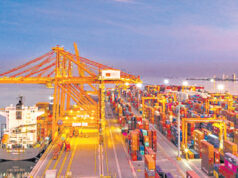Police, AMLC set up ‘Fusion Center’ vs terrorist-financing
THE PHILIPPINE police and Anti-Money Laundering Council (AMLC) have agreed to set up an office where both can share information in the fight against money laundering and terrorism-financing.
Under a memo, the agencies set up a so-called Fusion Center inside the national police headquarters in Quezon City that will house intelligence reports on terrorist financing.
The center will allow both agencies to maximize their resources and strengthen their feedback mechanism through the quick exchange of data.
“Our agencies have a shared goal — to ensure our countries’ safety and stability for the welfare of our people,” AMLC Executive Director Mel Georgie B. Racela said during signing ceremonies on Monday streamed on Facebook.
The fusion center allows the police to share with the council the names of persons of interest and other documents. The AMLC will also share information that may help police in their fight against crime.
National police chief Debold M. Sinas said that the Fusion Center had been completed and was ready to be occupied.
Suspicious transaction reports related to terrorist financing surged in the past quarter after an updated Philippine law against terror took effect, the AMLC said this month.
The reports submitted by financial institutions to the agency also surged almost 14 times last year to 7,230 from 524 in 2018, it said in a study.
The study supported previous findings that the Philippines is a destination country for illicit flows as the bulk of remittance-related suspicious transaction reports in terms of value were funds going into the country, the AMLC said.
International remittances accounted for 91% of the total remittance-related suspicious transaction reports.
It said it expects financial institutions to file more reports after the government tagged more local threat groups as domestic terrorists in December.
Nearly half of the filed reports related to terrorism and terrorism-financing were remittances — P579.31 million international inward remittances and P29.92 million within and sent elsewhere. — Bianca Angelica D. Añago



